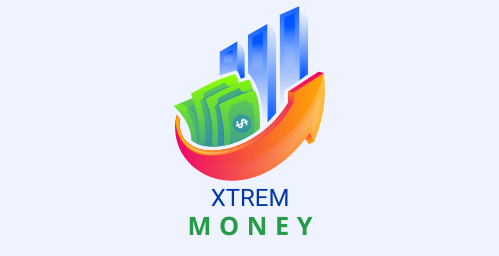Who is Nathan Anderson? The Founder of Hindenburg Research
Nathan Anderson, the founder of Hindenburg Research, is a renowned figure in the world of financial investigations. Known for his meticulous research and fearless approach, Anderson has carved a niche as a short-seller who exposes corporate misconduct and financial irregularities. Hindenburg Research, named after the infamous airship disaster, symbolizes Anderson’s intent to uncover companies headed toward catastrophic failures.
A graduate of the University of Connecticut with a degree in International Business, Anderson began his career in financial analytics. Before founding Hindenburg Research in 2017, he gained extensive experience working in investment management and as a financial analyst. This background provided him with the expertise to identify discrepancies in corporate financials and governance practices.
Hindenburg Research has since gained fame for publishing investigative reports on companies with questionable practices. The firm’s reports often lead to significant market reactions, with stock prices of the targeted companies plummeting as a result of the revelations.
What Did Nathan Anderson Say About the Adani Group?
In a recent and highly controversial report, Hindenburg Research accused the Adani Group, an Indian conglomerate, of engaging in “stock manipulation and accounting fraud schemes.” The report highlighted numerous alleged governance issues and questionable financial practices within the Adani Group, sparking intense debates across financial and political circles.
Anderson’s report, spanning over 100 pages, alleged that the Adani Group used offshore shell companies to manipulate stock prices, concealed significant debt, and exaggerated asset valuations. The report also raised concerns about conflicts of interest and a lack of transparency in the conglomerate’s operations. According to Anderson, the findings were the result of a two-year investigation, including interviews with former executives, a review of public records, and analysis of financial statements.
The report’s publication sent shockwaves through the financial markets, with Adani Group stocks experiencing sharp declines. The report also led to increased scrutiny from regulatory authorities, both in India and abroad, as well as calls for greater transparency in corporate governance.
Key Highlights of the Hindenburg Report on Adani Group
- Alleged Stock Manipulation:
- Hindenburg Research claimed that the Adani Group used offshore entities in tax havens to manipulate the stock prices of its listed companies. These shell entities were allegedly controlled by close associates and family members of the Adani Group’s leadership.
- Debt Concerns:
- The report flagged the group’s high levels of debt as a potential risk to investors. It alleged that the conglomerate had concealed the true extent of its liabilities through opaque financial structures.
- Governance Issues:
- Questions were raised about the independence of the Adani Group’s auditors and the transparency of its financial disclosures. Hindenburg argued that these governance lapses created significant risks for shareholders.
- Valuation Warnings:
- The report highlighted what Hindenburg described as inflated valuations of the Adani Group’s assets, suggesting that the market capitalization of its companies was artificially high.
Impact of the Report on Adani Group
The Hindenburg report had an immediate and profound impact on the Adani Group and its associated companies. Within days of the report’s release, the group’s listed entities lost billions of dollars in market capitalization. Investor confidence was shaken, and the report fueled debates over corporate governance standards in India.
Stock Market Reaction:
- The share prices of Adani Enterprises, Adani Green Energy, and other group companies saw sharp declines as traders reacted to the allegations.
- Global indices and mutual funds holding Adani stocks faced significant losses, reflecting the broader market impact.
Regulatory and Legal Responses:
- Indian regulatory authorities, including SEBI (Securities and Exchange Board of India), launched investigations into the allegations raised by Hindenburg Research.
- Legal actions were initiated by the Adani Group, which strongly denied the allegations and criticized the report as a “malicious attempt” to tarnish its reputation.
Who is Nathan Anderson Beyond Hindenburg Research?
Nathan Anderson’s work goes beyond financial gains. He positions himself as a watchdog for corporate accountability, aiming to protect retail investors from deceptive practices. While short-selling is a controversial strategy, Anderson argues that it serves as a necessary check against corporate misconduct.
Values and Motivation:
- Anderson emphasizes the importance of transparency and ethical practices in the financial ecosystem.
- He believes that exposing fraudulent activities is crucial for maintaining investor trust and market integrity.
Previous High-Profile Cases:
Hindenburg Research has previously targeted companies such as:
- Nikola Corporation: Alleged misrepresentation of its technology capabilities.
- Clover Health: Accused of failing to disclose a regulatory investigation.
- Tecnoglass: Flagged potential accounting irregularities.
In each case, Anderson’s work led to increased scrutiny and often significant market corrections.
Controversy and Criticism
While Nathan Anderson and Hindenburg Research are lauded for their investigative rigor, they are not without critics. Short-selling is often viewed skeptically, with detractors accusing short-sellers of profiting from market downturns. The Adani Group, for instance, described the Hindenburg report as an “attack on India” and questioned the motives behind it.
Despite these criticisms, Anderson maintains that his work is rooted in uncovering the truth and protecting investors from fraudulent practices. He emphasizes that all findings are based on meticulous research and publicly available data.
The Broader Implications of the Adani Report
The Hindenburg report on the Adani Group has sparked a larger conversation about corporate governance, regulatory oversight, and the role of short-sellers in global markets. For India, it highlights the need to strengthen governance standards and enhance transparency to attract and retain investor confidence.
Lessons for Investors:
- Conduct thorough due diligence before investing in any company.
- Be wary of companies with complex financial structures or opaque disclosures.
- Diversify portfolios to mitigate risks associated with individual company performance.
For Regulators:
- Strengthen mechanisms to identify and address corporate malpractices.
- Enhance monitoring of listed entities to ensure compliance with governance norms.
Conclusion
Nathan Anderson’s Hindenburg Research has once again brought corporate accountability into the spotlight with its report on the Adani Group. While the allegations have stirred controversy, they underscore the critical need for transparency and ethical practices in financial markets.
As debates continue, the report serves as a reminder for investors to remain vigilant and informed. Whether viewed as a necessary watchdog or a disruptive force, Nathan Anderson and his work have undoubtedly left an indelible mark on global finance.

